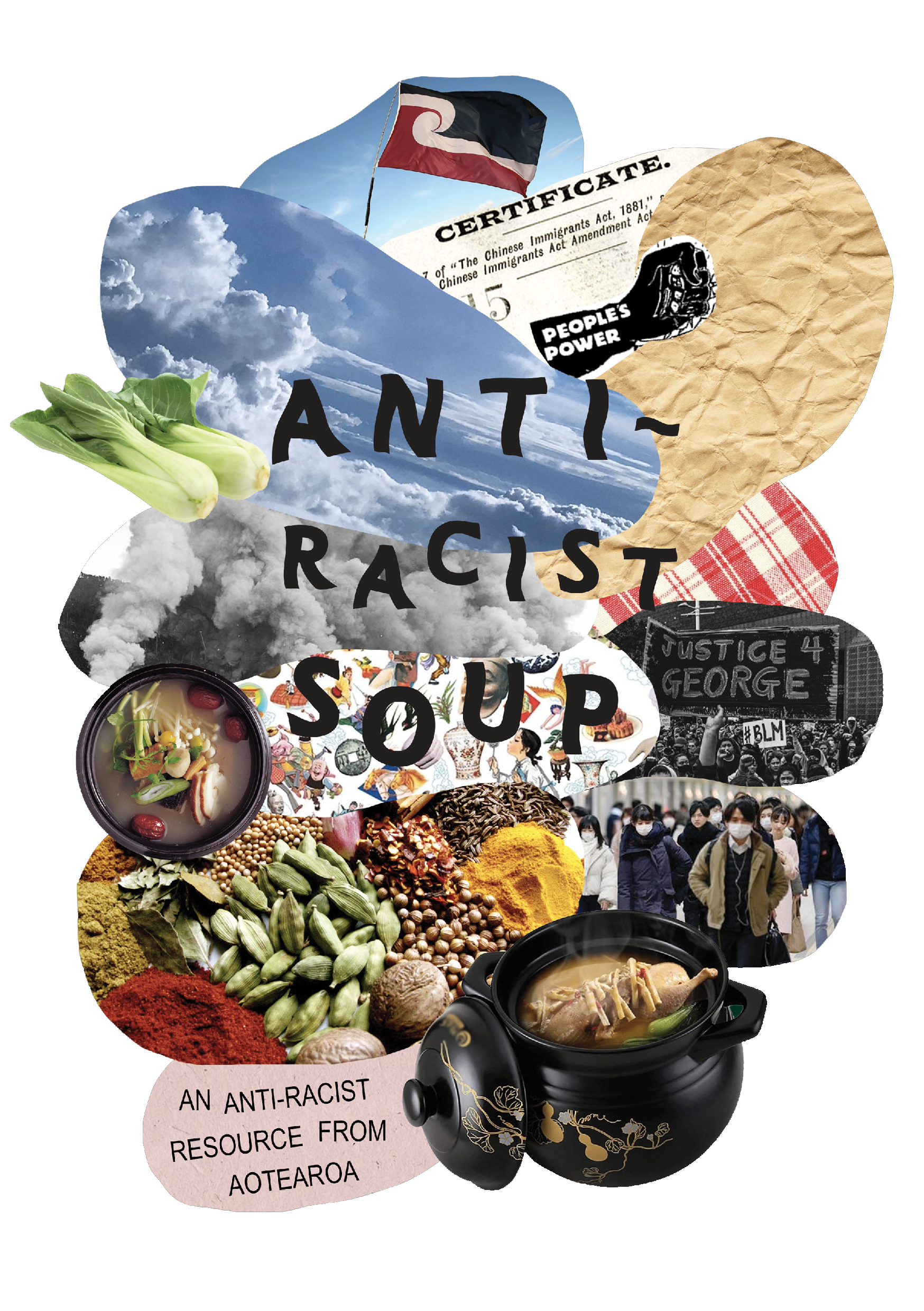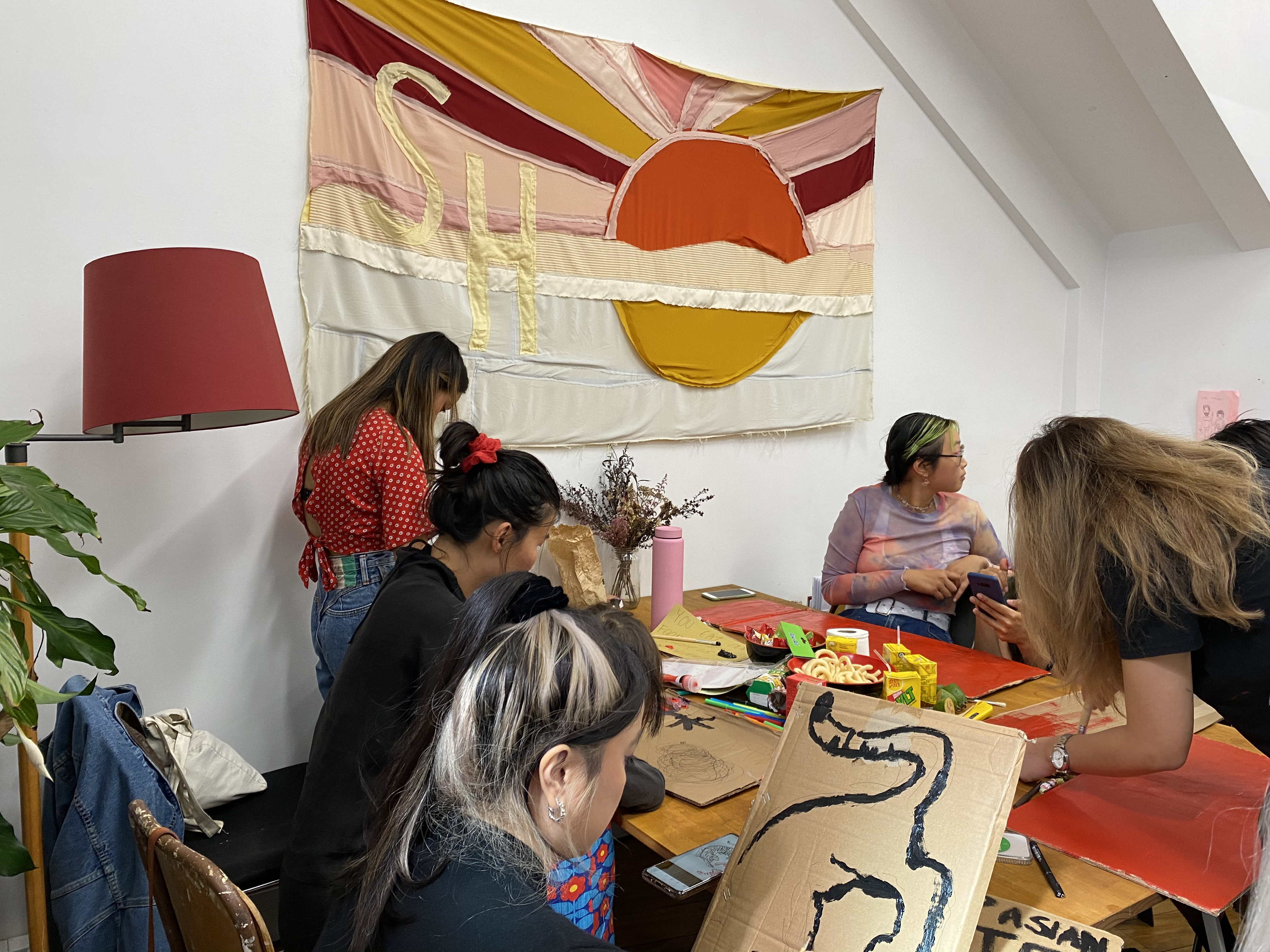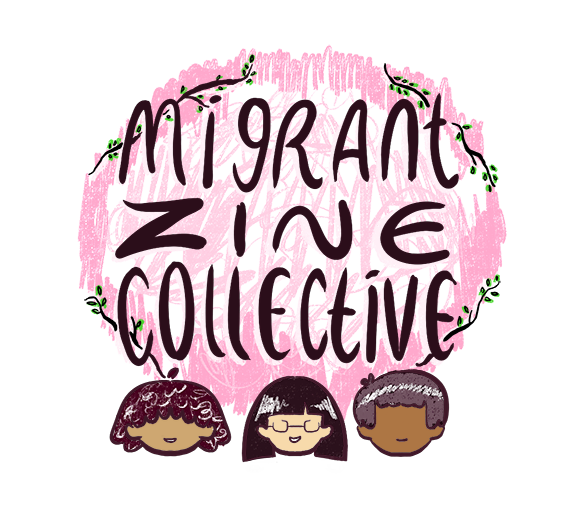Zine Philosophy is a column for zinesters and DIY creators to share their values, write their manifesto, and open up questions and reasons for making.

Migrant Zine Collective
by Helen Yeung
“For many, being a migrant can be isolating and alienating. Language barriers, cultural differences, general acceptance in the majority culture all act as forms of exclusion. But knowing there are people out there who share similar experiences is important.” — From Gen M #1
When I founded the group zine GEN M (for “Generation Migrant”) back in 2017, I wanted to reconnect with my Hong Kong Chinese roots and with others living in diaspora here in Tāmaki Makaurau. I knew a zine would reach the right people. Indeed, the project soon evolved into the Migrant Zine Collective. MZC is a group of creatives, activists, and community workers based in Aotearoa (settler colonial name New Zealand.) Our mission is to amplify the voices of migrants of colour through activism, self-publishing, and arts-based practices. This includes zine workshops, community events, conversation circles, pop-up libraries, online talks, and digital collabs that engages with people locally, but also reaches out to diasporic groups from around Asia and the world.
Grounded in the feminist principles and survivor-centered approaches that migrant women of colour movements forged here in Aotearoa, the collective aims to enable marginalized communities to unapologetically speak up, without limits on language, emotion, medium, or tone. Through art practice, we discuss and unpack critical issues of oppression such as sexism, racism, classism, and colonization — defying white-dominated power structures through the work we produce. For us, the act of truth telling is not only a means of challenging institutional violence, but a way to process shared and intersectional forms of trauma.
After the fatal shooting of six Asian migrant women and others by a white supremacist in Atlanta, we held a conversation circle for Asian community members to process the grief and trauma of this event. We cried, laughed, and raged at our shared experiences and discussed both local and global patterns of anti-Asian violence. Many of us challenged the language of the popular #StopAsianHate campaign, which obfuscates the interconnected structural and colonial nature of violence against racialized communities. We spoke on the realities of anti-Blackness, colourism, and gender-based violence, pervasive within our own families and communities, aspiring to create intergenerational change. It was a communal space of solace, love, healing, and collective power.
We all believe there is so much resistance, hope, vulnerability, and care in grassroots communities, which deserves recognition. We encourage people to connect the dots around systemic violence by questioning forms of injustice they have experienced and witnessed. Often, people are uncovering painful, messy, and even problematic stories during our workshops. We strive to meet participant’s access needs and realities as we open up these spaces of vulnerability.

Currently, we are in the midst of launching two new zines. Recipes for Resistance initially collected recipe submissions from our network as a way of highlighting mutual aid. This paved the way for Antiracist Soup, which is long-form essays that offers critical reflections on how migrants of colour relate to food. There are pieces of all kind, with topics like cooking and masculinity, the family structure, and building feminist solidarity through cultural foods.
We envision our zines, workshops and collaborations as educational toolkits, sort of stepping stones to map out futures beyond the status quo. On principle, we refuse models of activism built on hierarchy and inaccessible language, or which permit intracommunal violence, ableism, and burn-out culture. We urge others to value accessibility, community-building, and sustainable movements that value our collective wellbeing. This includes exploring the limitless modalities of expression as effective strategies in resistance work. We look forward to you joining us in any way possible.
 Links to support our work:
Links to support our work:
